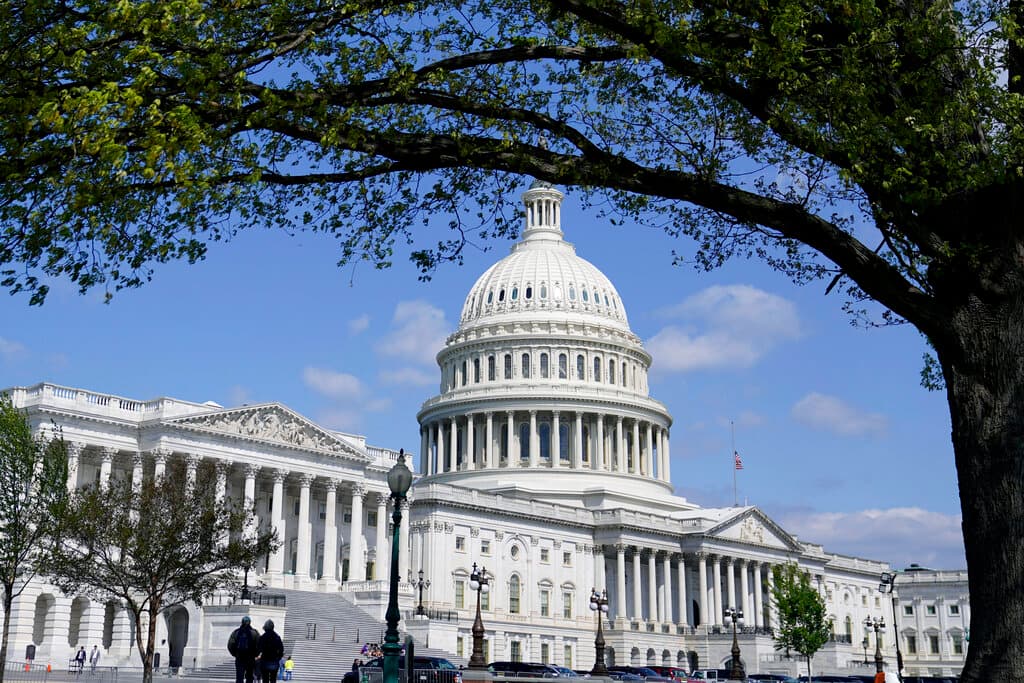January 6 Committee: Trial By Legislature, in Prime Time
Events at the Capitol almost exactly a year and a half ago are now finding new life in criminal complaints, on the campaign trail, and in the very halls of Congress that were the backdrop to the chaos.

The January 6 committee’s public hearings will begin tonight, and viewers will likely encounter proceedings that feel sourced from both the court of public opinion and a court of law, all broadcast on live television.
The intended audience is likely to include both Americans at large and one American in particular: Attorney General Garland, whose Department of Justice will ultimately decide whether to charge President Trump and his inner circle in relation to the events of January 6, 2021, at the nation’s capital.
Congressman Jamie Raskin, who serves on the committee, was perhaps speaking to all of the above when he told the Washington Post that the panel “has found evidence of concerted planning and premeditated activity” that encompasses “a lot more than incitement.”
Democrats, who failed to convict, or even come close to convicting, President Trump in impeachment proceedings in the days following January 6, will now convene something akin to a legislative trial. In the process, they will flirt with the Constitution’s stern prohibitions against bills of attainder.
Events at the Capitol almost exactly a year and a half ago are now finding new life in criminal complaints, on the campaign trail, and in the very halls of Congress that were the backdrop to the chaos that continues to course through American life.
Even as Americans tune in tonight, federal prosecutors and grand juries have been busy crafting their own accounts of what happened in a blizzard of criminal complaints and indictments. Business Insider tabulates 862 people who have so far been charged. Two top one-time Trump advisers, Peter Navarro and Stephen Bannon, have been charged with contempt for ignoring the committee’s subpoenas.
Thursday morning brought news that in the middle of a campaign for the governorship of Michigan, a Republican candidate, Ryan Kelley, was arrested in connection to the breaching of the Capitol on January 6. Efforts to disqualify candidates on the basis of the 14th Amendment’s Disqualification Clause — which bars officeholders who participated in insurrection from running again — have proliferated.
The most serious charge brought thus far has been “seditious conspiracy,” which the law defines as a conspiracy to “overthrow, put down, or to destroy by force the Government of the United States, or to levy war against them, or to oppose by force the authority thereof, or by force to prevent, hinder, or delay the execution of any law of the United States, or by force to seize, take, or possess any property of the United States contrary to the authority thereof.”
This charge has been leveled against leaders of two groups, the Proud Boys and the Oath Keepers. Americans are likely to get to know these groups from up close, as the hearings are expected to feature embedded footage that tracks members of those groups on that fateful day. The filmmaker, Nick Quested, is expected to be called to testify.
It is difficult to avoid the impression that the committee is pursuing larger game than a motley collection of extremists. It has promised to “present previously unseen material documenting January 6th, receive witness testimony, preview additional hearings,” all of which sound like the work of judges and juries rather than congressmen and congresswomen.
It is that blurring of boundaries against which the Constitution stands especially vigilant. Banned by the Framers, a bill of attainder describes when the legislature passes a measure that criminalizes a person or group without a trial. It was one of the signature abuses to which the American Revolution was a reaction.
A 19th century justice of the Supreme Court, Joseph Story, in his “Commentaries on the Constitution,” describes a bill of attainder as when “the legislature assumes judicial magistracy, pronouncing upon the guilt of the party without any of the common forms and guards of trial.”
Story sees in that assumption an “irresponsible despotic discretion, being governed solely by what it deems political necessity or expediency.” That might offer an explanation of why conservative Republicans who have supported Mr. Trump were excluded from the January 6 committee and why the hearings are unlikely to see a vibrant legal defense such as Mr. Trump was accorded during his second impeachment trial.
Mr. Raskin was the manager in that trial, which turned on substantially the same events that will be covered in tonight’s hearing. Mr. Trump secured a “not guilty” verdict as Mr. Raskin failed to persuade the requisite 60 senators of the president’s guilt. Neither an impeachment trial nor these hearings are considered strictly “legal” events, and thus the Fifth Amendment’s interdiction that prohibits double jeopardy is evaded.
In a case from 1946, United States v. Lovett, the Supreme Court issued a stark warning against those congressional acts, “no matter what their form, that apply either to named individuals or to easily ascertainable members of a group in such a way as to inflict punishment on them without a judicial trial.”
Five times, the Supreme Court has struck down acts of Congress as bills of attainder, which are also banned in every state. The members of the committee are unlikely to want to provide another opportunity for the ban to be litigated, this time not on television but before the high bench.

